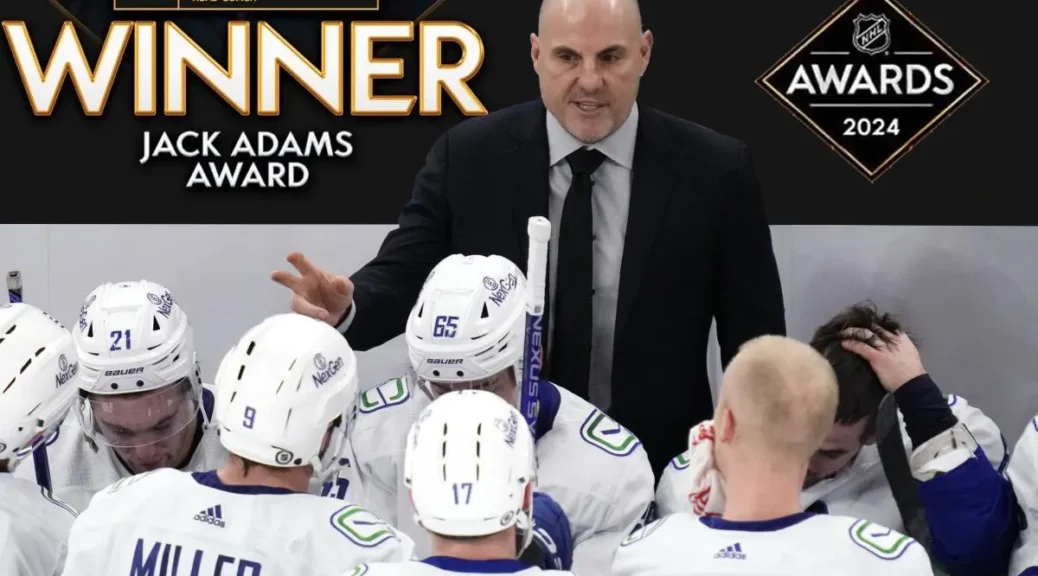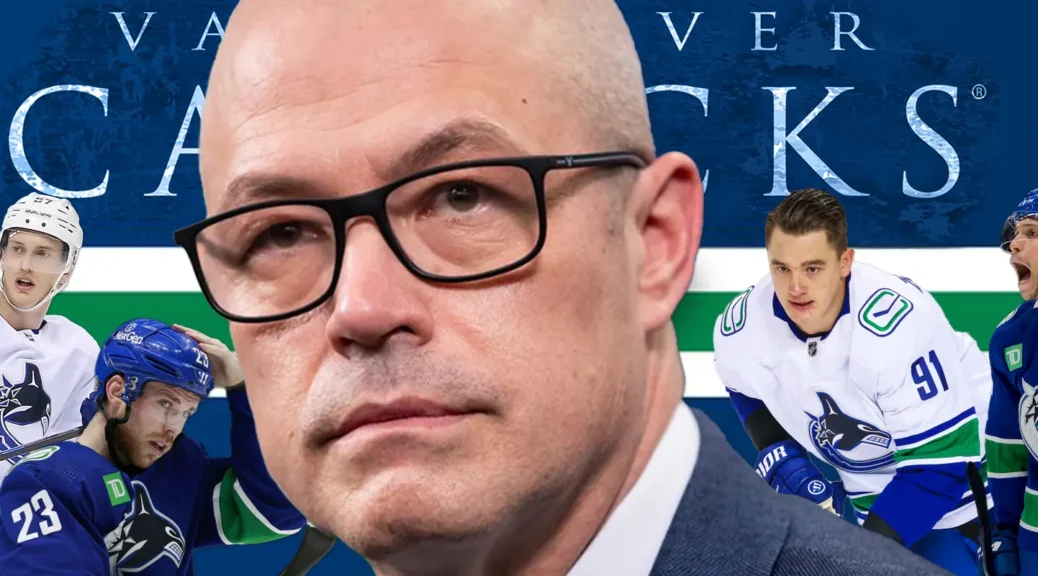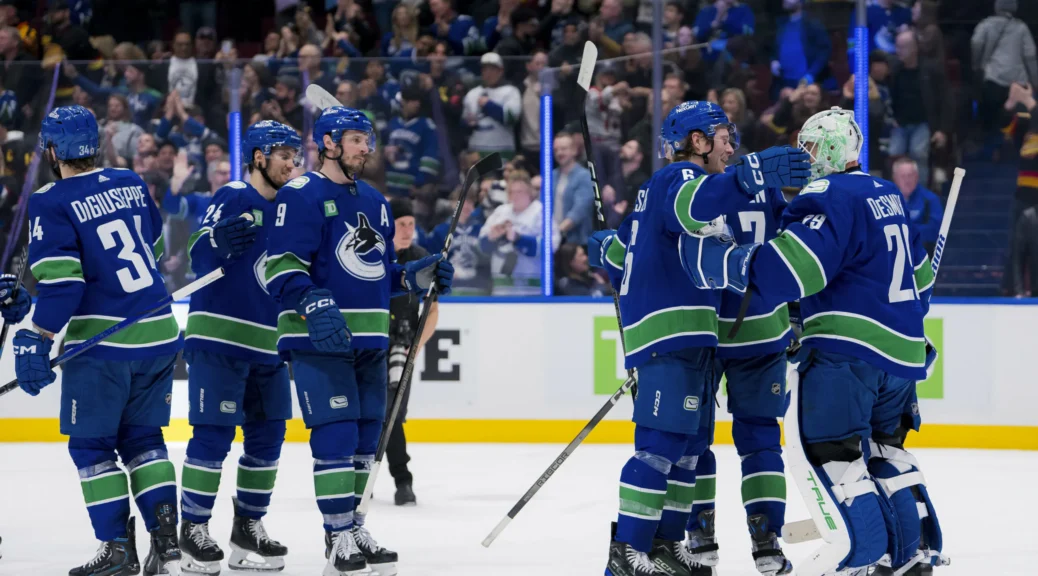Tag Archives: Canucks NHL
Frank Seravalli Clarifies Comments on Canucks Fans and Pettersson’s Injury
Frank Seravalli's Comments Spark Debate Among Canucks Fans - In the world of sports media, few names are as recognized as Frank Seravalli. Known for his insightful commentary and bold predictions, Seravalli has garnered a substantial following among hockey fans. Recently, however, his remarks on an Edmonton radio station have stirred controversy, particularly among Vancouver Canucks … Continue Reading ››
Tyler Myers Likely to Re-Sign with Canucks at a Discount: A Smart Move for Both Sides
Tyler Myers Likely to Re-Sign with Canucks at a Discount - A Smart Move for Both Sides: The Vancouver Canucks are poised to make a significant move in the coming weeks, as reports suggest that veteran defenseman Tyler Myers is likely to re-sign with the team at a substantially reduced salary. The 34-year-old blueliner, who … Continue Reading ››
Speculation: Who Will Be the Next Assistant Coach for the Vancouver Canucks?
The Vancouver Canucks' coaching staff is undergoing significant changes with the departure of Assistant Coach Mike Yeo. As the organization looks to fill this critical role, speculation abounds regarding who might step in and what specific skills they will bring to the table. The Canucks' recent struggles on special teams, particularly the powerplay, suggest that … Continue Reading ››
Canucks Coaching Changes: Mike Yeo Departs, Manny Malhotra Takes Over in Abbotsford
The Vancouver Canucks have recently made some significant changes in their coaching staff, with notable departures and new appointments that are set to shape the future of both the NHL and AHL teams. Mike Yeo, who joined the Canucks in 2022, has announced his departure from the organization. Meanwhile, the Abbotsford Canucks will see Jeremy … Continue Reading ››
Should the Vancouver Canucks Consider Trading Thatcher Demko?
The Vancouver Canucks' season may have ended, but the buzz around potential roster moves is just beginning. Among the most contentious topics is the idea of trading Thatcher Demko, sparked by the emergence of promising young goaltender Arturs Silovs. While such a trade could bring in significant assets, pinning the team’s future on Silovs might … Continue Reading ››
Vancouver Canucks Exit Interviews: Reflections on a Season of Resilience and Challenges
As the Vancouver Canucks' season came to an end after a grueling seven-game series against the Edmonton Oilers, the team held their exit interviews, providing a glimpse into the highs and lows of their journey. The 2023-2024 season was marked by resilience, unexpected injuries, and a renewed sense of pride among players and fans alike. … Continue Reading ››
Rick Tocchet Wins Jack Adams Award: A Testament to Transformation and Teamwork
The Vancouver Canucks’ head coach Rick Tocchet has been awarded the prestigious Jack Adams Award for the NHL's coach of the year, marking a significant milestone in his coaching career. Tocchet received 82 first-place votes out of 114 ballots, amassing 483 voting points, and was selected by the NHL Broadcasters’ Association. The league announced Tocchet … Continue Reading ››
The Vancouver Canucks’ Busy Offseason: A Challenge for Patrik Allvin and Management
The offseason is always a critical period for any NHL team, and this year is no different for the Vancouver Canucks. Fresh off an impressive season that saw them advance to the second round of the playoffs and finish sixth overall in the league, the Canucks face numerous challenges and decisions that will shape their … Continue Reading ››
Thank You, Vancouver Canucks, for an Amazing 2023/2024 Season
As we reflect on the 2023/2024 NHL season, it's impossible not to feel a deep sense of pride and gratitude for the Vancouver Canucks. This season was nothing short of spectacular, marked by determination, resilience, and a team spirit that captivated fans and defied the expectations of the hockey world. The Canucks’ journey to the … Continue Reading ››


